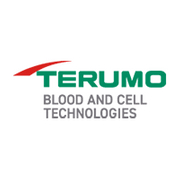Generating pathways to domestically sourced plasma-derived medicinal products: Report from a workshop by the International Plasma and Fractionation Association and the WP on Global Blood Safety
Abstract
Plasma-derived medicinal products (PDMPs) are recognized internationally as essential medicines required to treat various acute and chronic conditions including congenital deficiencies of plasma proteins in haemophilia and primary immune deficiency. Global provision of these medicines is dominated by a small number of commercial companies, influencing the price and availability of the products. Achieving a level of strategic independence from this dominance is now seen as a public health priority in many countries. During the Regional Congress of the International Society for Blood Transfusion (ISBT) in Cape Town, South Africa, in November 2023, around 50 delegates from 24 countries participated in a workshop (WS) organized jointly by the International Plasma and Fractionation Association (IPFA) and the ISBT Working Party on Global Blood Safety on pathways towards provision of PDMPs from domestic plasma independent of commercial purchase in the open market. The WS was structured around three themes, each addressed by a separate group:
- Quality/safety requirements for plasma for fractionation (PfF)
- Stepwise access for safe plasma proteins
- Approaching contract fractionation
A synthesis of conclusions from these groups included the following:
- The need to acquire support from government authorities for a national plasma policy, recognizing the difficulties posed by unstable political and bureaucratic environments.
- The value of embedding plasma and PDMPs within a patient blood management (PBM) paradigm to promote optimal clinical use of PDMPs.
- Training of blood/plasma collection personnel in the relevant principles of Good Manufacturing Practice (GMP), coupled with regulatory oversight of plasma product production in the engaged jurisdictions.
- Appreciation that limited access to contract fractionation may necessitate a stepwise approach, which may include small-scale preparation of versions of essential plasma proteins as an intermediate phase towards the manufacture of industrial-scale PDMPs from domestic plasma. (This article is open access.)


















